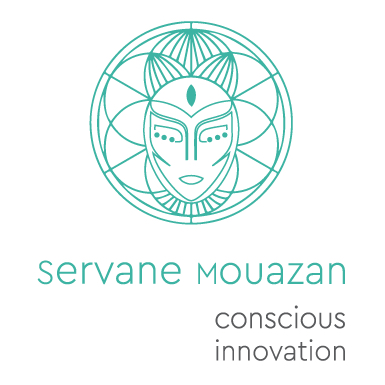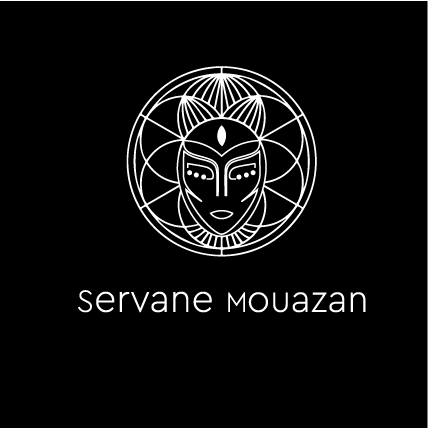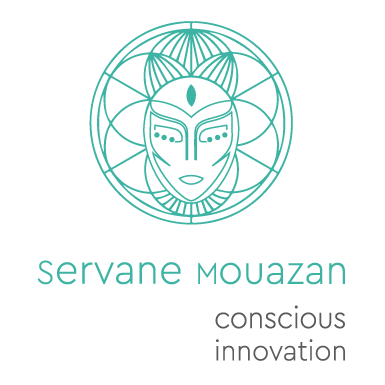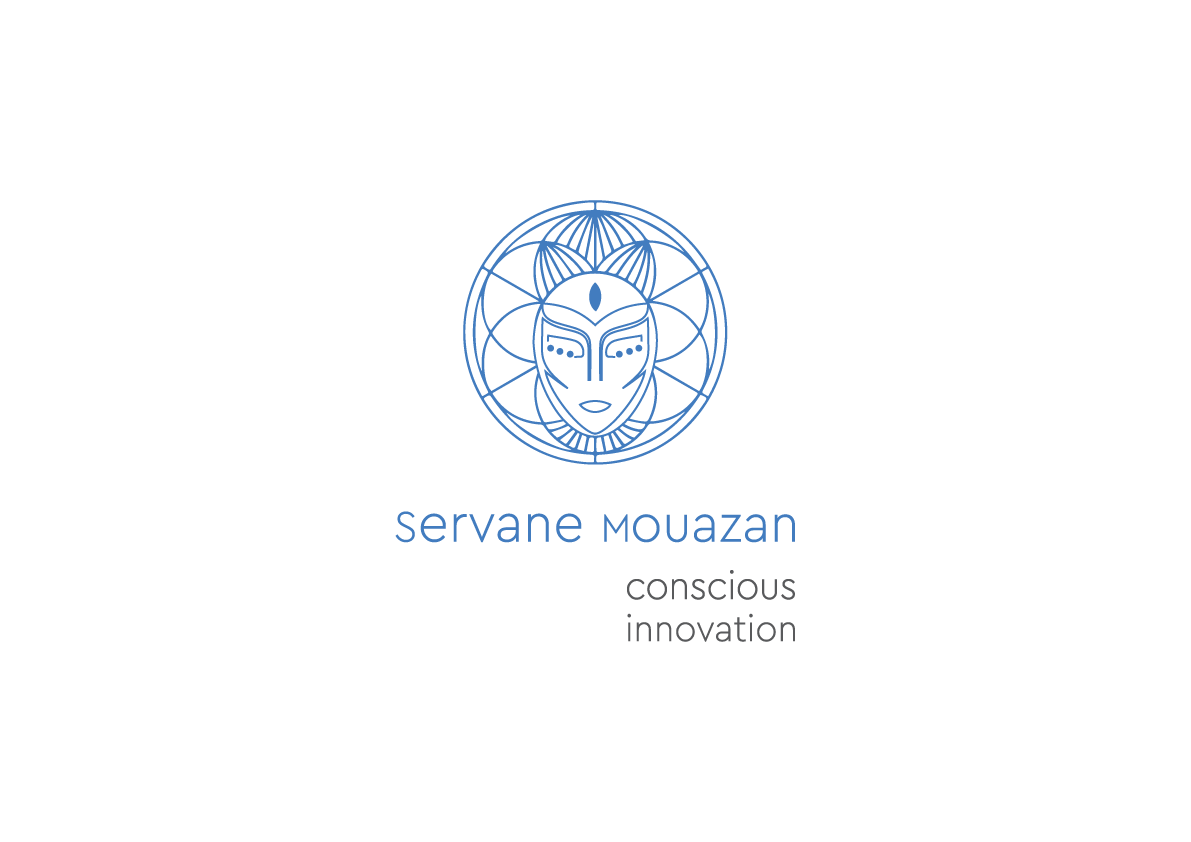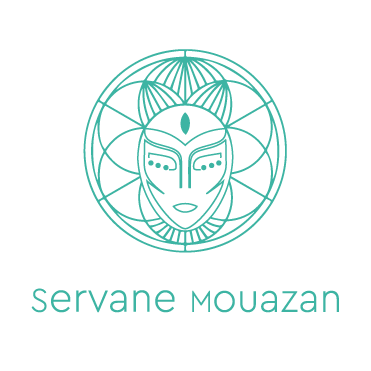A Deliberately Conscious, Accidental Investor with Matt Smith
How do you make hope less distant, as a social investor?
In this episode of Be & Think in the House of Trust, I am speaking with Matt Smith CBE, social investor and CEO at Key Fund Investments. He is passionate about supporting the growth and development of community and social enterprises, to enable them to deliver impact sustainably for disadvantaged communities and marginalised people.
We discuss how Matt came into investing from an unconventional background, and has channelled his passion for strong relationships and community-driven decision-making into a successful investment strategy.
Matt highlights the importance of trust and human connections in the investment relationship, then why – and how – responsible, sustainable investments benefit everyone.
Highlights from this episode:
(01:03) What can we impact on?
(03:18) Going back to grants
(06:44) No community left behind
(09:45) It all starts with a strong relationship
(12:25) Knowing the good and the bad
(17:54) How can we do better?
Useful Links:
Connect with Matt on LinkedIn: https://www.linkedin.com/in/matt-smith-cbe-33964823/
Visit the Key Fund website: https://thekeyfund.co.uk/
{{footer}}
Transcript
Hello everyone. My name is Servane Mouazan from Conscious Innovation and welcome, welcome to the House of Trust Podcast. The House of Trust is aimed at people who love to invest in social change. Through group sessions, one-on-ones and public conversations and podcasts like this one, we explore what trust looks like and the stories we create in ourselves and around us to generate valuable relationships and conditions that generate and ignite a positive impact.
With this in mind, I would love to welcome Matt Smith, Chief Executive Officer of the Key Fund, based in Sheffield. And, I welcome your insights as someone who moves capital for good.
Matt, what are you focusing on at the Key Fund at the moment? And, uh, what's the place of trust in your social finance work?
Wow. Okay. Big question to start. Well, thank you firstly for the opportunity and great to kinda talk about this really important, important subject of trust, which I think runs through everything we do.
And actually the reason I think I'm here and still doing it 20 years in. Six weeks, 20 years at Key Fund, which feels like a long time for an accidental career. So, a lot to think about. What are we working on at the moment? I guess the last two years have been quite, quite a strange time for us all, but have to some extent really moved us into a place around our trust and our mission, and actually, what are we really about? So prior to the pandemic, we were going along very nicely. I'd been CEO for four years and we were really positively moving with all of our aims and objectives in terms of growing our investment activity, our average deals, we were starting to diversify into new areas in the sector where we could help to generate more impact. I think a really exciting time. When the pandemic hit, you know, really quite honestly, the first thing I did was look at the wall and say, I dunno what to do. I haven't got a clue what comes next.
And I think quickly, it amounted to, okay, what can we impact on? Where are levers, where can, where can we help people and help organizations? So we started to think about that. We had a really early opportunity to get engaged in some emergency lending, but we. I think we made a really brave decision actually at that point, but, but has worked out very well, which was to concentrate on grant work.
And I think this goes to the centre of trust. So we talked to each other, we talked to clients, and we understood those clients. And I think, we really quickly knew that actually more debt wasn't gonna help necessarily regardless of the terms of that, of that debt. So you have a social investment organization that's been around for 20 years at that point, who had moved away from grant-making towards lending and actually, we had that conversation, at the trust with each other, to say, you know what?
We need to go back to grants. We need to find a way to bring money in and get grants out to, to clients. Mm-hmm. . So we did that. And, uh, a usual year for us looks about a hundred deals, about 5 million of lending. A million, million and a half of grants, alongside that. So 2021, we did 300 deals. We did, uh, 9 million of grant.
Which was unprecedented in just under 2 million of landing, so a complet changed scale type of activity. And I think it, it was that kind of relationship and trust basis that, that really drove us towards that. So where are we now? That's where we were. Well, this last year, again, we've, we've done about, um, 50/50 grant to, lending. So we've gone slightly more back towards our own model. And I think where we're trying to move to now is what does the future really look like? So I think it is about lending. I think, yeah, there is a real need for flexible working capital to help people, small amounts of money to help people to move forward with their enterprises and, and deliver the impact that they're looking to achieve.
But I also think there's something about different kinds of money around that. So what, what role does grant play? What role does patient investment play, and how do we start to structure that and move that forward? We're great believers in blended money. So I think using grants and loans alongside each other, and we're really working hard, hard to move back towards that.
I think the fundamental thing that ... and it, it is about trust, but it's about the relationship of trust. So the fundamental thing that came out of all of the challenges of the last two years for me was actually the trust that we had in each other. The way in which we could keep an organization rolling and delivering more than ever, uh, whilst we were all isolated.
And the fact that we understood how each other worked and worked through that, I respected that. I think the respect we had for our clients. So our first, our first consideration was actually how do we work more effectively for them and what is it that they need. And I think lastly, the respect between us and the clients.
So whilst at one point about half of our investment portfolio was on non-standard terms, so weren't paying, actually 50% were, and we offered them all the opportunity to not pay, pay us for a, for a good portion of time, but actually their commitment to us, the fact that they understood our mission and what we would do with the money was that they wanted to carry on repaying.
And actually, of that 50% that did take alternative terms, there's only single figures that aren't now back repaying us. And I think that goes to their commitment towards, and the support we gave them. And they understand that and that, so that trust between us is really strong. And I think that comes from, I think, authenticity.
So I think we try and be very clear about what we are and don't try to dress that up.
Mm-hmm.
I think that we're clear that we're trying to achieve the same things, so we want 'em to be sustainable and we want the impact to be sustainable as well as the financial sustainability. And I think that kind of shared aim is really important.
And then I think it, it's the consistency and our focus on being fair and proportionate with people and the way we show it through the pandemic to me, we got paid back. You know, the trust that's built in those relationships. We got paid back because of that. That's why people continued, that's why people, uh, wanted to make sure that they got the money back to us so we could continue to invest.
So I think really, you know, the last couple of years has all been about trust. It's nothing, you know, it's nothing else. And I think how do we take those forward and those lessons and not forget the really important things that we've learned and take those forward into the next phase. We're particularly working on, our mission is about successful communities and I think, you know, the thing that we keep talking about internally, and we'd started this work a long time ago, but actually how can we ever succeed if people are left behind in communities by virtue of some element of their, where they come from and the world where their parents came from. Uh, their religion, you know, their sexual, how can, how can that be and how, how can we. Truly say that we're delivering on mission, unless we really think carefully about that?
So a lot of our work, let's say over several years, but what certainly over the last two years has been focused on how do we, how do we make sure that through the investment of our funds, we are, um, helping to make sure that people are not left behind, that people are given opportunities that actually there is equity and that's shared. So something that's really at the forefront of everything we're trying to do at the moment, and we've built that, you know, really central into targets and what we're trying to achieve. Sorry a lot.
No, no, that's great. So there, there's a, a few things that I would love to unpack here.
There's something you said at the beginning about we really know what what the people who receive the funds that what they need. How do you make these things happen? And not just looking at numbers, but also moving from a numbers and the. You know, Excel sheet, a way of working to a really listening approach and I know that you are found of coaching as well. How do you move from that place to that place and embrace both professions at the same time?
Yeah, so I mean, for those people that, that don't know me, I'm, um, the chief Executive of a finance organization without a finance background. So my background, psychology counseling, so, uh, slightly different.
So, How do we do that? I, I think it's the quality of the relationship, so I think it's the fact that the investment managers really work with investees to understand the business model, but also the dynamics and, and, and the drives that are underneath that. There are things that I think we are trying to get better at, and I can kind of come onto those and where, where I think we really, uh, we really need to think more and develop our practice more and take actually some of the investment approaches into slightly different areas.
But most of it comes from the quality of that relationship. So it's, it's how the investment managers work with clients when they're applying, take the proposal apart and put it back together and really understand what's going on, the motivations and the way that the organization operates. We also talk to our clients a lot.
So the investment managers, I, I like to think we operate as kind of external sales and intelligence for our clients sometimes. So for a really live example, so I had an email on Thursday from somebody that wanted a chat that I've known for a long time and worked with for many years, uh, who happened to be really good at asset management.
Um, I then got an email, um, I think it was Friday, from an investment manager saying, we've got, one of my clients needs to find a new building, you know, they don't really know. they, they've never, they've never had a building that they've had to manage themselves. They're interested in buying, but they don't really, do you know anybody?
So like the group of the key fund team were saying, oh, well should talk to so and so, you know, specific area. We know the people in the area, these are people should be speaking to. And then we connected these to different clients and actually, it looks like the Magic solution for me, it's not just kind of that initial interaction, it's how do you continue that relationship and how does that, that trust kind of expand into the portfolio afterwards.
Hmm. And then there's also, we also do something really practical. We ask people. So, uh, we have a, we do a regular survey of clients that, that a another social enterprise does for us, actually. That's completely anonymous, that asks people what are we getting right? But also what, what else should we be doing?
What aren't we getting right... You know, where should we be thinking? So I think it's the desire to have those conversations, both real, you know, face-to-face conversations, but also how do we find out the stuff that maybe people don't want to say towards that's cause there, there is ultimately a power dynamic.
We've got money, clients want money and we have to appreciate that. So having those, those ways in which people can get the message towards without having to be uncomfortable, I think is really important as.
And I remember from a previous conversation is that this, uh, that is having, uh, not guessing, but really coming to the place where people are more open to share,
Yeah.
What they usually never share is what's gonna ask, uh, add some meat on the, on the trust bone, isn't it?
Yeah absolutely. And, and I've said for many years that, you know, when I, I started as a, as an investment manager, and I always said to clients, I want to know good or bad, you know, whether things are going well or not, actually, if they're not.
I might be able to help, there might be something that we can do. So, you know, let, let's have, let's hear when you win awards, I want to know that cuz that's brilliant and it makes me happy as a human being that somebody that I've worked with is doing well. But actually I also want to be really helpful if, where things don't, and I think that's, that's when you work out the value of the relationship when things.
You know when things are hard, when, when they're really tricky. When, when, you know, hope feels pretty distant, that that's when you have those conversations. That's actually when I think trustees really formed. That's where it, that's the kind of the white heat of it. Because if you can, if you can talk to someone honestly, when you are in a bad place and it feels like you know that, that's the hardest bit.
So my what would you advise people who are the new kids on the block who come into that profession and they're super good at numbers. Yeah. How, what, what would you advise them to develop then to, to, to really make that, that journey to hope more, uh, less distant?
Uh, so, so I, I guess I'd, I'd. I'd never be, good to think I've got the answers cuz I, I think, you know, the great thing is I learn, I learn something new and you know, the best lessons I've learned are from our investees/
Cuz I think, you know, amazing people doing just breathtaking life, phenomenal things every day. That just feels extraordinary to me. But I, I think that the thing that I do still, is I get out and see people and just don't... Nothing to do with the deal or a deal. I just go and see people that I've worked with, um, or clients that the team are saying, these are really great.
You should, you know, you should go and just, just see. And I think just sitting and listening and hearing, and actually talking to, you know, the full team. Not just, not just kind of the leadership or the management and really hearing about how things are in, you know, for how people are experiencing things.
Really. I think, you know, that's what I think are the greatest lessons for anyone who's wanting to invest in this space, really feeling the impact and understanding what that really means, because ultimately, and I do, I do think this is true, even people who are finance first, for want of a better term, ie, their first lens is finance.
I think ultimately, pretty much everyone I've ever met, it's the impact that gets him going. It's that that's exciting. So I think really getting close to that and trying to understand that is the thing that, that, that makes all of this complete. Yeah. I've got some really amazing memories of, of, of, of things down down the years.
Doncaster refurnish our. I'm from Doncaster is my hometown. One of the first deals I ever did, I took a, uh, a account load of people from I, it was cabinet office at that point along, and they get articulated laies full of returns of furniture from a major retailer. So they just get these boxes and they don't know what's in them.
And so they turn that into furniture that's really great and usable. That's sold on at affordable prices to people in need. But what they actually have is these massive jigsaw puzzles. And of course that's fantastic for people who have low confidence, who are trying to build skills and experience. So actually it's about employing people and teaching them life skills and other things.
And the young man who was in charge of where all of this inventory came in, was telling this story and he joined Doncaster Refurnish. And then he'd, he'd been in trouble as a young as, as a younger man. He'd joined Refurnish. He'd done really well. He'd then got into trouble. He'd spent some time away, and then he'd come back and they'd given him another chance and they looked at the issues that led to that, that challenge. They put a support network around him and now he was managing all of their goods in and he said, you know, no one else would've given that second chance. And it's those kinds of things. And listening to those kinds of stories, I think that that really helped me to kind of understand what the impact is and how, how that can be, how can that can be articulated and what that really means to people.
So there's a lot to unpack here. I hear that you're not, um, you, you haven't got enough for having just a snapshot of a situation. You really need to, you really, uh, enjoy having a sort of contextual input and you, uh, hear your words, where you feel the story, you hear the story, you tell the story. So your investment style is pretty much involving all your senses here, Matt. indeed.
Yes. Yes, indeed.
So Matt, just to close off slowly as we reach to the end of that podcast, what kind of question woul to ask yourself as you continue on your journey?
Wow, that's, that's a big one. It's hard to kind of think of something that's kind of a killer question without it sounding slightly, uh, fanciful, I guess.
You know, the question I always try to ask is, can we do this better? And I, and I think that's probably the purest question I can ask of, of myself and of Key Fund. There are, you know, there's a world of restrictions out there about the way in which we can do things and there's funds and funders and all those things that we try to balance.
But ultimately the starting premise of Key Fund way back when and, and what I really believe is it's, it's our job to take the complexities of of various funders and to kind of hide the wiring as much as we possibly can.
Mm-hmm.
...And make it as simple as possible at the front end. Now, you know, there's a limit and there always will be because we have to have a state aid form filled in or something like that.
But actually how do we make as simple as possible?
Mm-hmm.
and I. , that's, that to me is the thing that we should always be asking ourselves. Yeah. I guess the other thing is, what, what aren't we doing that we could be doing that's helpful? Um, and I think it's, it's both. Is it helpful, but also we are the best people to do it.
I think you can get kind of dragged into doing things that aren't necessarily the best thing you could be doing just because you, you can do it. And I think that's something we try to resist, but probably they're the two things. I try to do the most .
I'll be checking up on you to see how it's going.
Yeah.
Oh, it's fantastic. Well, thank you so much. I mean, this is lovely, lovely questions that I'm sure people can take away and ask for themselves, um, and their, in their environment and in the communities they're supporting.
And for the joy of the service you are, you know, uh, that that is being created at the end is just worth asking, isn't it?
I think so. Yeah. . I hope so. I hope so.
Fantastic. Matt, it was a pleasure having you today on this, uh, House of Trust podcast and, uh, I wish you all the best with the Key fund in, uh, in the next steps. Brilliant
All the best
It was refreshing to hear Matt speaking about the focus on fairness, trust, and good relationships.
And whilst he's conscious of the power dynamic linked to being part of the team with the money, I appreciated the efforts the team put into uncovering the full story of the issues that people experience, especially as he says, hope feels distant. They do that in a thoughtful way. There's a lot of care put into their funding approach.
So I hope you enjoyed that new conversation of Be and Think in the House of Trust. Next time I'll sit with Rashana Aratnasaram. She's a woman in social finance, an economist and a chartered accountant. She's also interested in social policy and organizational design as well. She says her role is to be a translator.
She'll talk to us about the importance of specialist generalists and how they contribute to building inner trust and driving meaningful change in the impact investment ecosystem. So in the meantime, make sure you subscribe to this podcast and share it. The show is available to listen to anywhere you can find your podcast and it's completely free.
And for more insights, events and resources, you can head to my website, servanemouazan.co.uk and you can get my regular Conscious Innovation updates. You can also find me on Twitter, Instagram, and LinkedIn. So leave me a note. I'd love to hear from you.
